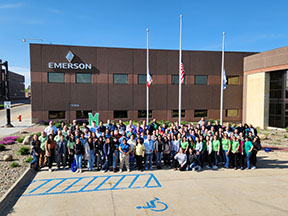New mobile mental health response service to help patients, police, ERs

A person experiencing a mental health crisis may not know who to turn to, and oftentimes it’s the police who respond to their emergency — a new mental health crisis response unit looks to change that in Marshall County.
Law enforcement and emergency room staff are praising the Central Iowa Community Services (CICS) Mobile Crisis Response team, which went live in Marshall County earlier this week.
“A number of months ago in our regional planning meetings, this was identified as a service we were hopeful to be able to provide within the region and so it’s started on a rollout,” said Marshall County Sheriff Steve Hoffman. “The goal is to have people on-site from the time of a call in less than an hour.”
Instead of a uniformed police officer or deputy sheriff responding to mental health crisis calls, a trained mental health professional will arrive to help instead. Eyerly Ball Mental Health Services is partnering with CICS to provide responders.
Similar crisis response services have been rolled out in other areas covered by CICS, including Boone, Story, Jasper, Madison, Poweshiek and Warren counties.
“The Mobile (Crisis) Response team is there to determine what needs to happen next, whether it be counseling (patients), deescalating them, getting them set up with local services or even taking them to the local emergency room because hospitalization is needed,” said CICS CEO Jody Eaton. “We feel that if we can get professionals out there to do what they do, the officers can get back to the issues of public safety.”
Hoffman said the Mobile Crisis Response service will benefit mental health patients, law enforcement and emergency room staff in Marshall County.
“Oftentimes we are dealing with people who may not be an imminent threat to themselves or others,” Hoffman said. “We’re really not equipped to properly get them connected to the appropriate services.”
Marshalltown Police Chief Mike Tupper said his department also stands to benefit from the new crisis response team.
“We deal with mental health issues in the community on virtually a daily basis,” he said. “It ties up a lot of our resources and, up until now, there weren’t a lot of resources available.”
Both Hoffman and Tupper said peace officers in their departments have received training on how to handle mental health crisis calls but said they cannot replace psychiatric experts.
“I’m further excited at the opportunity to reduce the stigma of mental illness,” Hoffman said. “Arriving at the emergency room with a uniformed deputy, the automatic assumption is that somebody’s done something wrong.”
That is the fate of many people going through a mental health crisis — they end up in an emergency room, or ER.
“It’s a tragic thing when you come to the ER and we’re so packed that we can’t get you out of the lobby because there’s not a bed to put you in,” said UnityPoint Health-Marshalltown ER Medical Director Dr. Lance VanGundy. “We try to avoid that, but the mental health burden complicates that.”
In many cases, he said the ER is not the best place for a person in a mental health crisis.
“There are going to be times when somebody is eventually going to need in-patient treatment, and maybe they need a stable environment, and they need medical clearance first to make sure their emergency isn’t a true, organic medical emergency,” he said. “What ERs are good at is doing the diagnostics stuff to figure out if this is really just a psychiatric emergency — and I don’t mean to downplay that — or are there other things going on that are contributing to it.”
For instance, VanGundy said someone with an overactive thyroid may experience confusion or delirium, symptoms that could be confused with a mental health crisis.
“That’s a medical problem, not a psychiatric problem,” he said. “Having said that, ERs are not good at providing psychiatric care in general, it’s not what we’re trained in, it’s not our field of specialty.”
Additionally, VanGundy said the ER can be expensive and staff are often obligated to run lab tests for medical issues before a diagnosis can be made.
Some people suffering from mental health issues can end up in the criminal justice system.
“There are different options that they have through our medical department,” said Marshall County Chief Jailer Patrick White of inmates suffering from mental illness. “We have what we call ‘tele-psychs’ through Center Associates that they can have counseling sessions over video.”
He said the jail also has an on-call doctor to help treat medical issues, including mental health crises. White also said about 45 percent of the jail’s inmate population is dealing with mental illness and receiving treatment.
“Mental health is a big thing, and we’re not a hospital,” he said.
While Hoffman said he is glad to see the crisis response service in Marshall County, he said he is concerned about the program’s sustainability.
“We’re going to have to see what costs are incurred and how the region is able to fund it through the levy,” he said.
Eaton said state lawmakers will be responsible for ensuring such services continue. She said the Mobile Crisis Response team is paid for by mental health taxpayer dollars in the 10-county CICS region, including Marshall County.
“Mobile Response will become a core service soon, so it is something that we will be responsible for providing,” she said. “That is something that they’re going to have to address legislatively.”
The CICS mental health crisis line can be reached at 844-258-8858. For more information on the CICS Mobile Crisis Response service, visit https://www.cicsmhds.org/service/
——–
Contact Adam Sodders at
(641) 753-6611 or asodders@timesrepublican.com






